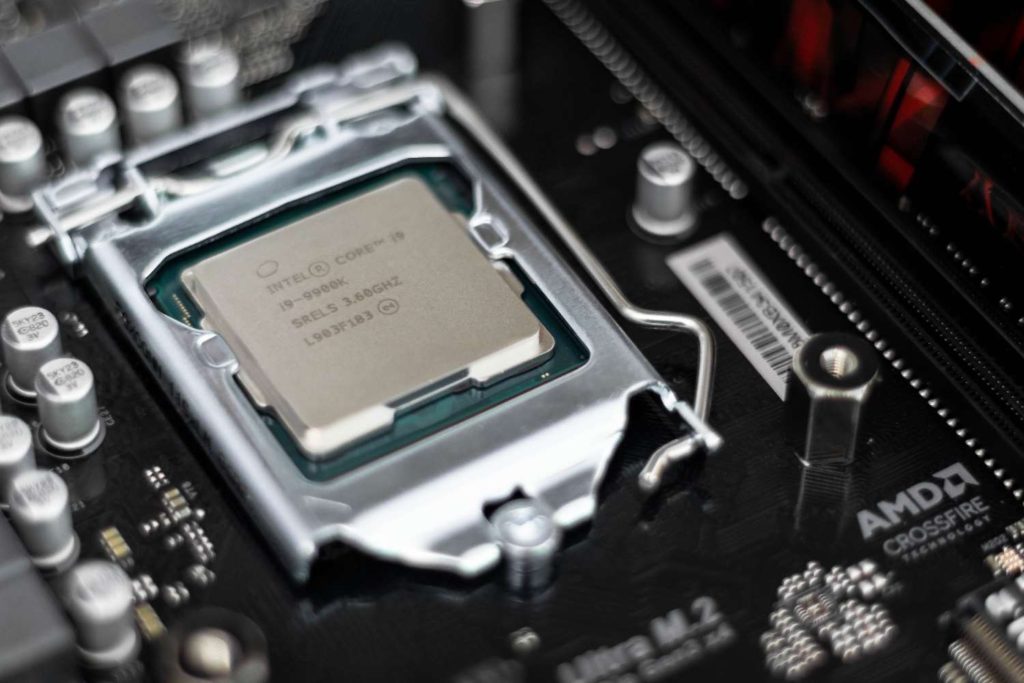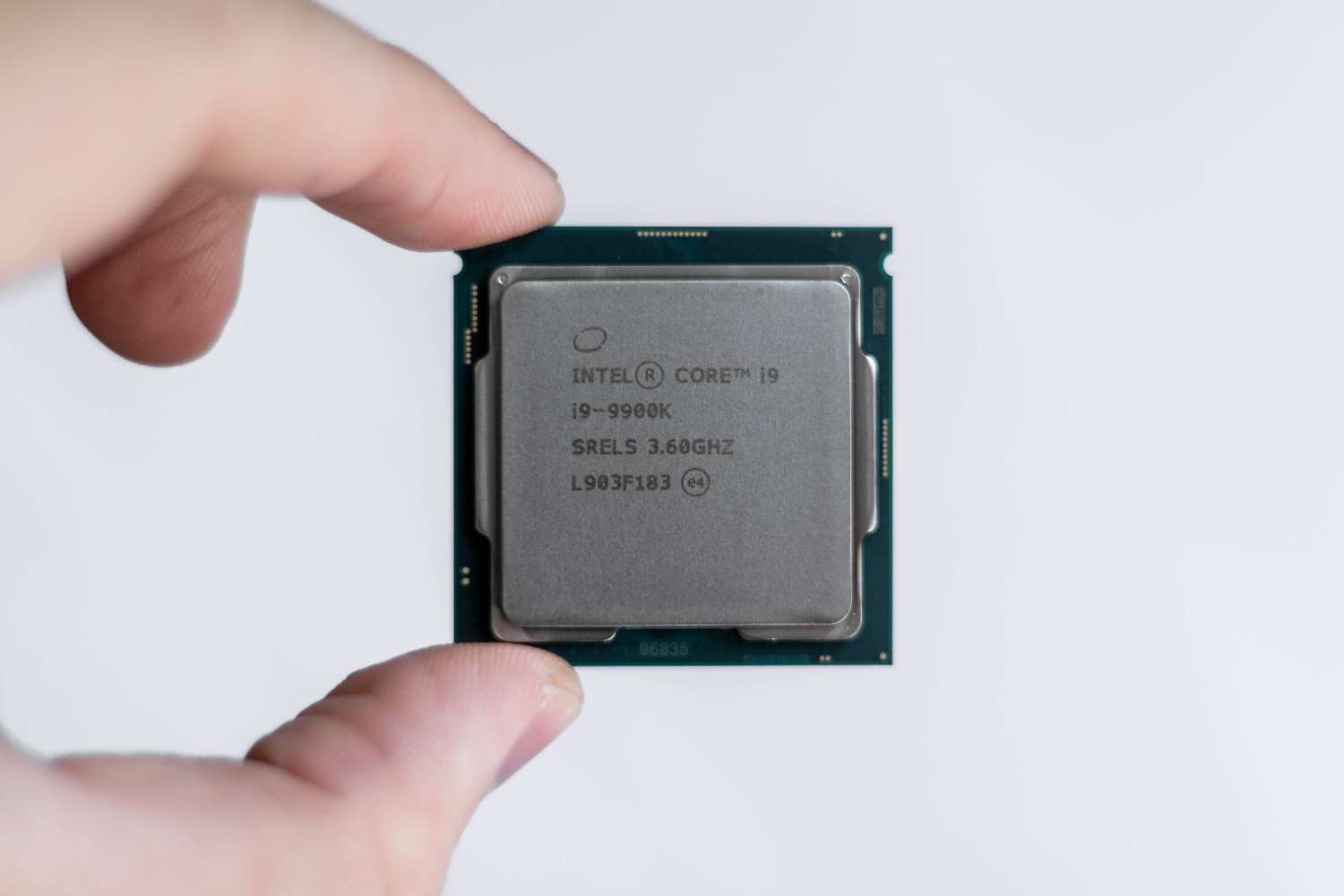Upgrading your computer processor gives your PC more RAM memory, better power and faster speed, and a new graphics card for greater performance. This makes CPU upgrade a worthy cause.
Although upgrading laptop processors is time-consuming and costly, it takes the right know-how and tools to get the job done. The process of upgrading your laptop processor involves replacing the motherboard. Therefore, make sure that the new chip or motherboard is compatible with your computer.
If you’ve previously built a gaming machine, you’ll find installing new components onto your laptop a walk in the park. The process involves reversing the initial work to remove the existing chip to install a new, compatible processor.
Intel Core i7 vs. i9
Intel’s Core i7 and i9 processors offer powerful processing options – they can do most computing tasks instantly. The high-end processors offer significant yet unique speed enhancements. The Core i7 processor was launched in 2010 while the i9 was released in 2017.
The i9 boasts up to 20 threads and 10 cores for truly impressive performance, superior to that of the i7 – this explains the need for an upgrade. I9 processors deliver more operating frequencies, threads, cores, and bigger caches than i7 processors.
They also support hyper-threading, faster clock speed, and larger cache memory. However, a high-end Core i7 could be as good as a low-end Core i9 processor. If you’re a video editor, an animator, a 3D designer, a programmer or an engineer utilizing CAD-based applications, you can make the most of an i9 processor laptop.
Factors to Consider Before Upgrading Your i7 to i9 Processor
Determine the right (compatible) i9 processor to buy and make sure it’ll fit your laptop. It’s worth knowing that the processor upgrade is worth your money. However, before you begin to replace your processor, various factors come into play.

Verify Processor (CPU) Compatibility
Check the various motherboards compatible with the one on your laptop. Most laptop manufacturers provide a list of processors compatible with their motherboards for easy upgrade.
Look for the model of your existing laptop processor and motherboard to begin the search. With Intel processors, access motherboard compatibility list using the Intel Product Compatibility Tool – select the option Desktop and Workstation Processors to view the list of processor families from Intel Core, Celeron, Pentium, and Intel Core (i9, i7, i5, and i3)…
Note that you may contact your motherboard or system manufacturer for the exact specifications of your laptop before doing an upgrade. Your manufacturer can provide you with available upgrade options and compatible motherboards or processors.
Determine the Socket Type for Compatibility
Motherboard sockets evolve over time, translating to a change in their complexity and shape. This means you can’t just buy the most recent processor and expect it to fit your laptop motherboard. Sometimes, however, the latest generation processors can fit older motherboards.
The 10th and 11th generation of Intel processors, for example, are compatible with LGA 1200 sockets. Therefore, Z490 and Z590 motherboards are compatible between the two processor generations.
An Intel 10700K processor and a Z490 motherboard can upgrade to an 11700K CPU or i9-11900K processor. However, the processor and motherboard can’t upgrade to an i9-12900K due to the difference in socket types – the latter has an LGA 1700 socket.
Check Motherboard BIOS Compatibility
Make sure that your laptop processor and the new motherboard BIOS match, even if the CPU and motherboard sockets are compatible. Usually, older motherboards don’t support the latest processors.
Incompatibility in the motherboard BIOS support can cause erratic behavior in display or the booting process.
Choose a Compatible Thermal Option
Faster processors with multiple cores like the i9 produce more heat, meaning your laptop is prone to overheating. Choose a thermal chassis and solution that’ll work for your new laptop temperature.
Other ways to find a matching motherboard for your processor include using a website like PCPartPicker and Intel’s Processor Match tool. Once you know the right motherboard for your laptop processor, you just need to find where to buy them.
Tools You Need to Upgrade Your i7 Laptop to i9
Apart from the new processor, you also need thermal paste for application on the new CPU, a soft cloth to wipe off thermal paste from the existing i7 processor, and an ESD grounding mat or an anti-static wrist strap. The latter keeps your machine in position to prevent it from moving and risking damage.
Prepare Your i7 Laptop for the upgrade
Before you begin to upgrade your laptop’s i7 processor, make sure that the machine runs on the most recent version of BIOS. Use CPU-Z to check your BIOS version.
The software gives not just BIOS information, including its release date, but also your current CPU type and model. If your BIOS isn’t the latest, visit the motherboard manufacturer’s website for the most recent version. Download and install the latest BIOS cautiously to prepare your machine for the upgrade.
Upgrade Your i7 to i9
The i7 and i9 laptop must be of the same socket to do the upgrade. I9 processors usually support R4 socket and i9/ x299 motherboard, meaning you have to buy a new motherboard and processor to upgrade your i7 laptop.
Moreover, laptop processors are usually permanently soldered onto the motherboard, making the upgrade complex. If you don’t want to buy a new i9 laptop and possess the skills and tools needed for the upgrade, follow the short guide below.
Connect the anti-static strap to a radiator as an earthing point and to yourself. Begin the upgrade process:
- Disconnect your laptop from power sources and place it on a flat worktop.
- Search for a compatible motherboard and buy one.
- Open your laptop’s back panel to remove your current motherboard and install the new one.
- Attach all power and data cables properly and close your machine’s back panel.
- Startup your laptop with the new i9 processor and install Windows or any other preferred compatible operating system.
Conclusion
Can I upgrade my laptop processor from i7 to i9? Although you can upgrade your i7 processor to i9, the process is time-consuming, expensive, and requires tools and know-how. If you want to do more than everyday computing tasks, you won’t go wrong with an upgrade of your machine.
An i9 laptop processor delivers more power, speed, and performance, making it ideal for content creation jobs and gaming. However, you must make sure that your existing motherboard and CPU socket are compatible with the new i9 processor.
We hope that you found this article useful and it helped you upgrade your laptop’s i7 processor to i9, or simply made an informed decision.

